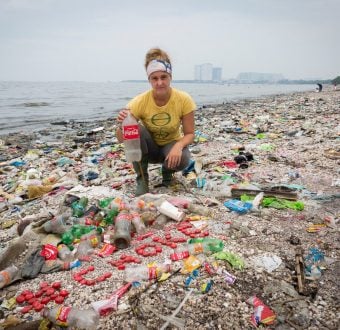Today, an interagency working group composed of the Environmental Protection Agency (EPA), Department of Homeland Security (DHS) and the Occupational Safety and Health Administration (OSHA) released recommendations to President Obama in response to his August 1, 2013 executive order (13650), which directed them to modernize chemical plant safety and security policies. In response, the Coalition to Prevent Chemical Disasters released the following statement:
While we are pleased the Working Group report included some of the recommendations made by the most endangered communities and workers, if the Obama Administration is serious about protecting workers and communities, the president must stand up for prevention requirements that include safer chemicals and processes. The people of West, Texas deserve better than the voluntary half-measures in today’s report. They, and millions of Americans like them, deserve real safeguards from the threat of chemical disasters that are adopted as enforceable requirements — not just voluntary recommendations that the industry can ignore until the next disaster. The true test of President Obama’s call to action will come with the EPA’s Request For Information (RFI), due to be issued in the federal register in the coming weeks.
The special interests that have blocked chemical facility disaster prevention policies for the last 30 years have had their way long enough. It is time for the President and federal agencies to move forward with strong and enforceable safeguards that prioritize the safety of the workers and communities most at risk.
We cannot wait for more disasters like West, Texas; Richmond, California; and Anacortes, Washington. Communities and workers should not be asked to put their lives and health at high risk one day longer than they already have.
The administration should move quickly by using authorities it already has to finalize the implementation of new prevention-based regulations within the next 18 months:
· Put prevention first by requiring that chemical facilities use safer chemicals or processes wherever feasible;
· Prioritize protection of the most vulnerable populations, including workers, nearby communities and first responders;
· Modernize the OSHA Process Safety Management (PSM) standard, including continual safety improvements and the use of inherently safer technologies, and ensure that PSM facilities are registered in the EPA’s Risk Management Program;
· Where safer processes are not available, enhance funding for emergency response, emergency planning, evacuation and possible relocation of impacted communities;
· Ensure regular inspections of facilities, whistleblower protections for workers, and personnel surety provisions that protect workers’ rights.
The Coalition offered its specific recommendations to the interagency working group in a May 13 letter calling on the Administration to put prevention and people first. Additional coalition policy recommendations can be found at: http://preventchemicaldisasters.org/resources/epa-listening-session/
The Coalition to Prevent Chemical Disasters is composed of over 100 environmental justice, labor, public health, national security, and environmental organizations united in a call for President Obama and the Environmental Protection Agency to take action now to protect workers and fenceline communities through prevention. /
Please contact the below-named people to reach labor, environmental justice, health, community and environmental leaders available to comment:
Nick Sifuentes, BerlinRosen: 646-200-5321, [email protected]
Erin Bzymek, BlueGreen Alliance: 202-706-6916, [email protected]
Stephenie Hendricks, Coming Clean: 415-258-9151, [email protected]
Brian Gumm, Center for Effective Government: 202-683-4812, [email protected]
Michele Roberts, Environmental Justice and Health Alliance: 202- 704-7593, [email protected]
Rick Hind, Greenpeace: 202-413-8513, [email protected]


